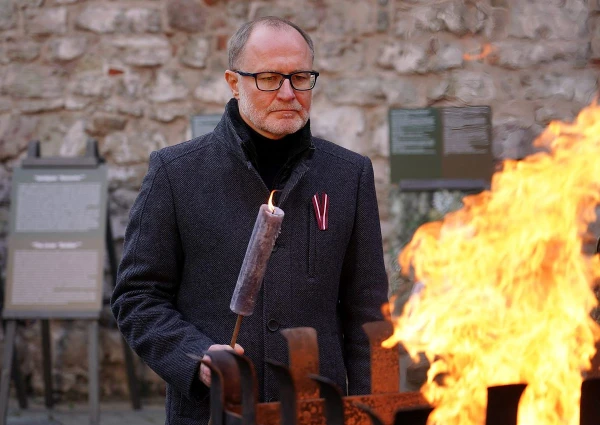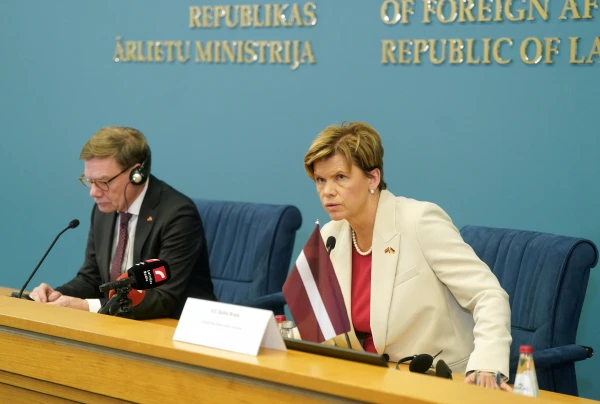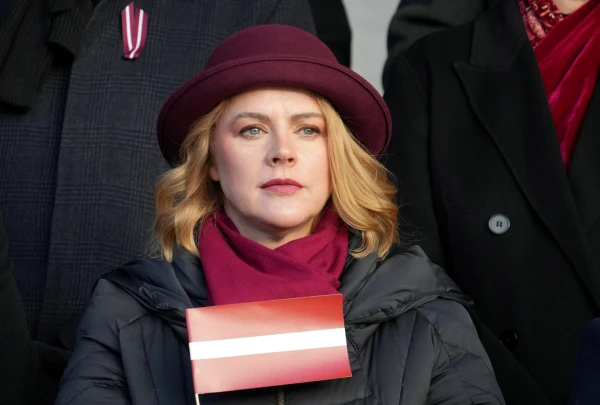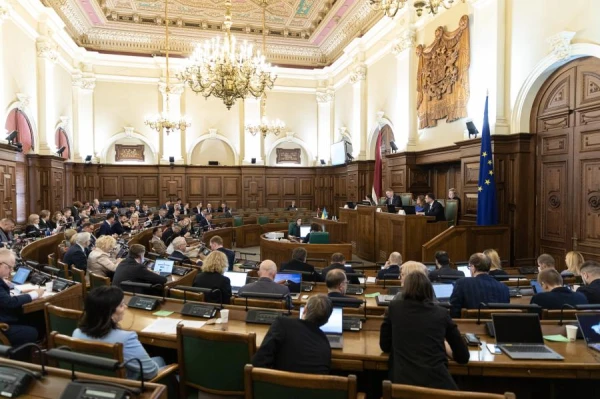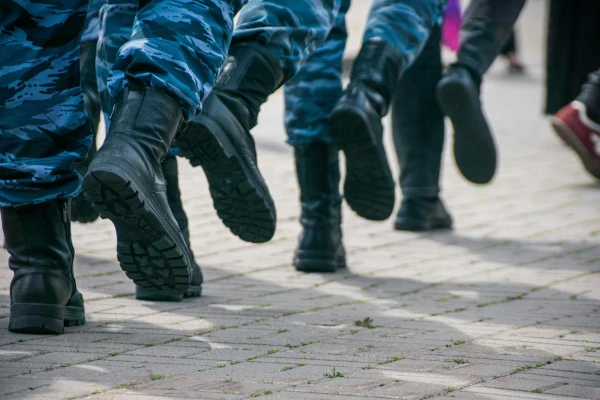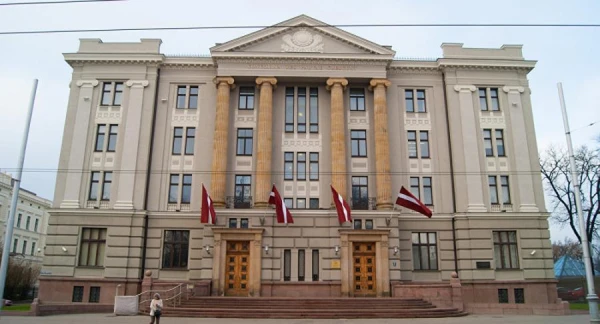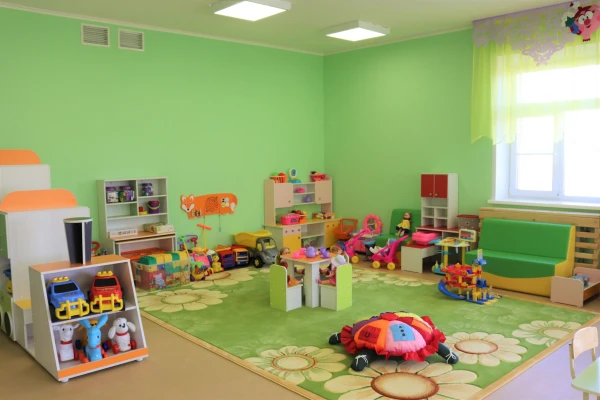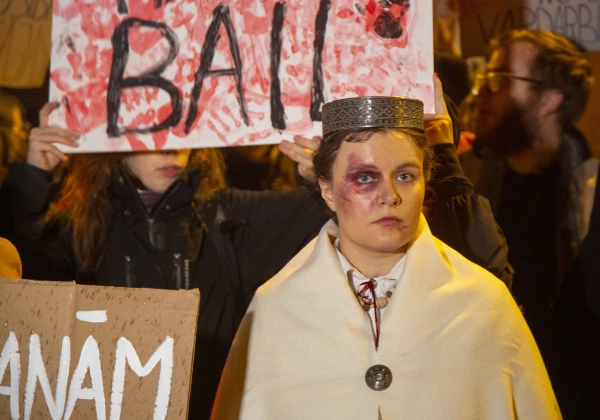
The "Marta" center and several other non-governmental organizations sent a letter to the President of Latvia, Edgars Rinkevics, urging him to return the law on withdrawal from the Council of Europe Convention on Preventing and Combating Violence Against Women and Domestic Violence to the Saeima for reconsideration, LETA reports.
According to organizations, the convention is one of the most important international documents in the field of human rights, protecting women, children, and other individuals at risk of violence, as it obliges the state not only to punish perpetrators but also to develop preventive mechanisms, educate society, provide assistance to victims, and strengthen the capabilities of law enforcement agencies to prevent violence.
"The Cabinet of Ministers, non-governmental organizations, and law enforcement agencies that work daily with victims of violence have repeatedly publicly confirmed the positive impact of this convention on the development of the protection and support system for victims of violence in Latvia," the organizations emphasize.
They note that the bill was considered in haste, without a full discussion involving society, experts, and stakeholders. At the meetings of the Foreign Affairs Committee, the responsible ministries, including the Ministry of Foreign Affairs, were not given the opportunity to express their views.
The authors of the letter also emphasize that there is a disinformation campaign in the public sphere regarding the compliance of certain articles of the convention with the Constitution of Latvia and other laws.
Given that the convention has been ratified by 39 member states of the Council of Europe, the organizations believe that Latvia's withdrawal from it would seriously harm the country's international reputation and jeopardize Latvia's image as a European, rule-of-law state that supports human rights and gender equality, as stated in the letter.
The letter was signed by more than 2000 people, including the first chairman of the Latvian People's Front, Dainis Ivans, public activist and former deputy of the Supreme Council of Latvia, Velta Chebotarenok, actors Vilis Daudzinsh, Zane Daudzina, Ilze Kuzule-Skrastina, Kaspars Gods, Inga Ungure, directors Matiss Kaja, Ugis Olte, Elmar Senkov, musicians Ralfs Eiland, Aija Andreeva, Jakabs Nimanis, Marta Grigale, writers Inese Zandere, Ieva Melgalve, Inga Gaile, and others.
The World Has Already Responded to the Denunciation of the Convention
Following the decision of the parliamentary majority, the statement was also disseminated by the international human rights organization Amnesty International. The organization's senior specialist on women's rights, Monika Costa Riba, believes that "Latvia's withdrawal from the Istanbul Convention will be a devastating blow to the protection and rights of women and girls, as well as all those facing domestic violence, and will send a dangerous signal to perpetrators about the possibility of using and killing women and girls with impunity."
"This decision was made by influential groups of rights opponents who spread harmful disinformation about this important protective document to demonize gender equality, as well as the rights of women and LGBTI people," said the organization's representative. "We urge the President of Latvia to do the right thing and use the veto power to stop Latvia's withdrawal from the Istanbul Convention and to promote its full implementation to protect women and girls from gender-based and domestic violence."
The Saeima Adopted the Law on Latvia's Withdrawal from the Istanbul Convention
As previously reported, on Thursday, the Saeima adopted the law on Latvia's withdrawal from the Council of Europe Convention on Preventing and Combating Violence Against Women and Domestic Violence, known as the Istanbul Convention. The law was passed with the votes of the opposition and the Union of Greens and Farmers (UGF).
The bill was proposed by the opposition party "Latvia First" (LPV), but it was also supported by other opposition parties — the National Alliance (NA), the "United List" (UL), and "For Stability", as well as representatives of the UGF, which is part of the ruling coalition. The coalition parties "New Unity" (NU) and "Progressives" opposed it.
Fifty-six deputies voted for the withdrawal from the convention, while thirty-two representatives from the NA and "Progressives" voted against it, and two deputies — Igor Raev and Didzis Shmits — abstained. The debates on the bill lasted more than 13 hours.
Although the law was adopted urgently, this procedure was not approved by two-thirds of the votes, which gives the president the opportunity not to proclaim the law and return it for reconsideration. Opponents of the law are also discussing other possible ways to suspend or delay its entry into force — filing a lawsuit in the Constitutional Court or calling on the president to stop its proclamation to gather signatures for initiating a referendum.
Initially, the proposed LPV bill had neither annotation nor justification, but within a couple of weeks, the party prepared them. According to LPV, the current practice of implementing the Istanbul Convention does not provide confidence that all state and municipal institutions act in accordance with the principles outlined in the accession declaration.
LPV is dissatisfied that objections were raised by several other participating countries — Austria, Finland, Germany, the Netherlands, Norway, Sweden, and Switzerland — regarding the declaration added by Latvia upon ratifying the convention. In these objections, the main argument is the non-compliance of the declaration with the norms of the convention, as it is considered an unacceptable reservation. According to LPV, the international community does not agree with the position of the Saeima as outlined in the declaration and opposes the interpretation with which Latvia joined the convention and undertook the obligations enshrined in it.
LPV believes that withdrawal from the Istanbul Convention "will eliminate problems with the application of its norms" related to the Latvian declaration and its non-recognition by several other states. Moreover, according to LPV, refusal from the convention will give the state more freedom in allocating budget funds for measures to prevent and combat violence, directing them to those institutions and NGOs that genuinely need funding.
The initiative of LPV was joined by other opposition parties. Although the goal of the convention is to eradicate violence, opposition deputies traditionally emphasize one term from the document — "gender", which is attributed with a destructive influence on traditional family values.
The opposition is also supported in this matter by representatives of the UGF in the coalition, arguing that the Istanbul Convention offers an ideological, rather than a practical approach to the problem, as it largely relies not on specific tools for combating violence but on an ideological view of the so-called "gender".
The UGF joined the opposition in voting at the end of September, which caused noticeable instability in the coalition. Although coalition partners expressed their intention to work on approving the "security budget" for the next year, fewer politicians believe in the ability of Prime Minister Evika Silina's (NU) government to work effectively in the long term. Support for the ratification of the Istanbul Convention was one of the grounds for forming Silina's government and including the UGF in the coalition with NU and "Progressives".
Experts Against Withdrawal from the Convention
Meanwhile, most experts and non-governmental organizations dealing with violence prevention issues oppose withdrawal from the convention, expressing concerns that this will weaken the protection of victims of violence and negatively affect Latvia's international image in the eyes of Western allies.
On Wednesday, a protest against the withdrawal from the Istanbul Convention took place outside the Saeima. It was attended by at least 5000 people, making it one of the largest protest actions in recent years. On Thursday, a picket for the denunciation of the convention was held outside the parliament, with about 20 participants.
Latvian President Edgars Rinkevics has so far been very evasive in his statements regarding the denunciation of the convention, not expressing support for either side. According to him, he is trying to maintain neutrality in order not to become a participant in the election campaign. Rinkevics admitted that after the Saeima's decision, the issue of withdrawal from the convention may come to his desk, and he will then assess it comprehensively and make a decision.
Beata Jonite, a representative of the "Marta" center, emphasized that after the ratification of the Istanbul Convention, people have been seeking help much more often. A representative of the "Skalbes" organization, Andra Shvinka, pointed out that the number of people seeking help has increased because "people feel that the state is protecting them." In her opinion, in the absence of an international monitoring mechanism, the state may lack the capacity to address the issue.
Representatives of the "Dardedze" center emphasized that the contribution of the Istanbul Convention lies in a clear system for preventing violence, and based on it, a plan for preventing violence for 2024–2029 has been developed, which includes the responsibilities of all ministries and other institutions.
Ombudsman Karina Palkova explained that the term "gender", which opponents of the convention insist on, refers to the social role of a person, not to biological sex. She noted that the convention aligns with the values of the Constitution. The convention does not require the recognition of other genders and does not encourage gender transition, Palkova emphasized, commenting on widespread misconceptions. She also added that the convention does not interfere with the concept of family — its main goal is the prevention of domestic violence. According to her, the convention makes the prevention of violence a state obligation and disciplines it in this area.
Judge of the General Court of the European Union Inga Reine pointed out that Latvia's withdrawal from the Istanbul Convention would create a negative presumption against the state and could potentially have a negative impact on international cooperation, but it would not relieve Latvia of its already undertaken obligations.
At the same time, most deputies of the Saeima supported the declaration prepared by the NA, UGF, and UL, which they present as "an alternative to the Istanbul Convention." The "Progressives" and NU opposed it, stating that in this way, the parties seeking the denunciation of the convention are trying to "wash their hands" and create the illusion that this declaration can be an alternative. A representative of the "Marta" center, Jonite, noted that a political statement cannot replace the convention, as it does not provide for obligations and monitoring mechanisms from the state.
In Latvia, the Council of Europe Convention on Preventing and Combating Violence Against Women and Domestic Violence, also known as the Istanbul Convention, came into force on May 1 of last year. This international agreement obliges participating states to develop coordinated policies for more effective protection of women from all forms of violence, as well as men and women from domestic violence. Additionally, participating countries must ensure comprehensive assistance and protection for victims, establish crisis centers, 24-hour hotlines, specialized support centers for victims of sexual violence, and protect and support children who have witnessed violence.
